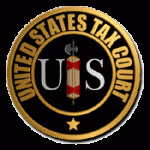 In Dynamo Holdings v. Commissioner, 143 T.C. No. 9, the Tax Court upheld the taxpayers’ motion to use predictive coding to respond to the IRS’s discovery request. The decision is an important development for e-discovery providers and taxpayer representatives who can now use predictive coding in response to electronic discovery requests.
In Dynamo Holdings v. Commissioner, 143 T.C. No. 9, the Tax Court upheld the taxpayers’ motion to use predictive coding to respond to the IRS’s discovery request. The decision is an important development for e-discovery providers and taxpayer representatives who can now use predictive coding in response to electronic discovery requests.
Predictive Coding
Tax Court Judge Buch cited Magistrate Judge Andrew Peck’s article, Search Forward: Will Manual Document Review and Keyboard Searches be Replaced by Computer-Assisted Coding?, L. Tech. News (Oct. 2011), to explain the technology and the accuracy of predictive coding.
Predictive coding is a technology-assisted review tool that uses human inputs and established algorithms to allow the computer to determine the relevance of a specific document. Typically, the human reviewer reads and codes a set of documents and the system identifies properties in those documents that it can use to identify other documents. Once the system establishes a pattern and can make confident predictions, counsel can use specific qualifiers to produce relevant documents and narrow the review. The court referred to the effective use of predictive coding by individuals at home and at work to filter out spam email.
Dynamo Holdings v. Commissioner
The case came to Tax Court on the IRS’s motion to compel production of documents in cases concerning several transfers from Beekman Vista, Inc. (“Beekman”), to a related entity, Dynamo Holdings Limited Partnership (“Dynamo”). Notably, Dynamo is the limited partnership involved in U.S. v. Clarke, 573 U.S. (No. 13-301, June 20, 2014). The IRS alleged that these transfers are disguised gifts to Dynamo’s owners. The taxpayers argue that the transfers are loans.
The IRS requested that the taxpayers produce Electronically Stored Information (“ESI”) contained on two specific backup storage tapes, or produce the tapes (or copies) themselves. The taxpayers argued that it would cost at least $450,000 and take many months to fulfill this discovery request. They contend they would need to review each document on the tapes (between 3.5 million and 7 million), identify responsive documents, and withhold privileged or confidential information. The taxpayers requested the Tax Court deny the IRS’s motion or, in the alternative, the Court allow the use of predictive coding.
Judge Buch noted that the taxpayers’ request to use predictive coding was “somewhat unusual” because Rule 70(a)(1) requires the parties to use informal discovery prior to resorting to the formal discovery process. The Court explained that it is “not normally in the business of dictating to parties the process that they should use when responding to discovery.” However, the Tax Court held that it would publish an opinion in this case because the Court has not previously addressed computer-assisted review tools.
The Tax Court refused the taxpayers’ request to deny the IRS’s motion to compel because a party is generally required to produce ESI in the form in which it is maintained under Rule 72(b)(3). The Court found that Rule 70(c)(2) did not apply because the IRS showed good cause for the discovery. However, the Court did find that the taxpayers were reasonable in objecting to the IRS’s proposed solution of a clawback agreement. The clawback agreement would allow the IRS to see all of the confidential and privileged information on the tapes, but preserve the taxpayers’ right to later claim that all or part of the information is privileged and not subject to discovery.
Each party presented an expert witness to address the use of predictive coding in this case. The taxpayers’ expert examined certain details of the two tapes requested, interviewed the person most knowledgable about the backup process and backup tapes, and performed cost calculations comparing the IRS’s suggested method of discovery with the predictive coding approach. The taxpayers’ expert found that using the predictive coding approach 200,000 to 400,000 documents would be subject to review at a cost of $80,000 to $85,000. He found that under the IRS’s approach 3.5 million to 7 million documents would be subject to review at a cost of $500,000 to $550,000. The Court did not find anything in the IRS expert’s testimony to discredit the taxpayers’ expert’s analysis.
The Court disagreed with the IRS’s argument that predictive coding is an unproven technology finding that “the technology industry now considers predictive coding to be widely accepted for limiting e-discovery to relevant documents and effecting discovery of ESI without an undue burden.” The Court also cited several federal cases allowing computer-assisted review, and specifically predictive coding, as acceptable means to search for relevant ESI documents including Moore v. Publicis Groupe, 287 F.R.D. 182 (S.D.N.Y 2012), Hinterberger v. Catholic Health Sys., Inc., No. 08-CV-3805(F), 2013 WL 2250603 (W.D.N.Y. May 21, 2013), and In Re Actos, No. 6:11-md-2299, 2012 WL 7861249 (W.D. La. July 27. 2012). Thus, the Court granted the taxpayers’ order to allow use of predictive coding to fulfill the IRS’s discovery request.
Read the full opinion here: Dynamo Holdings v. Commissioner, 143 T.C. No. 9 (2014)
 In a case involving a who’s who’s of big law tax litigators and amici briefs from several well known international companies, a split panel of the 9th Circuit has reversed the Tax Court in Altera Corp. v. Commissioner. The two judge majority held that the IRS’s Section 482 cost-sharing regulations withstand scrutiny under general administrative law principles and are entitled to Chevron deference. The Tax Court decision invalidating those regulations as arbitrary and capricious is reversed.
In a case involving a who’s who’s of big law tax litigators and amici briefs from several well known international companies, a split panel of the 9th Circuit has reversed the Tax Court in Altera Corp. v. Commissioner. The two judge majority held that the IRS’s Section 482 cost-sharing regulations withstand scrutiny under general administrative law principles and are entitled to Chevron deference. The Tax Court decision invalidating those regulations as arbitrary and capricious is reversed.

